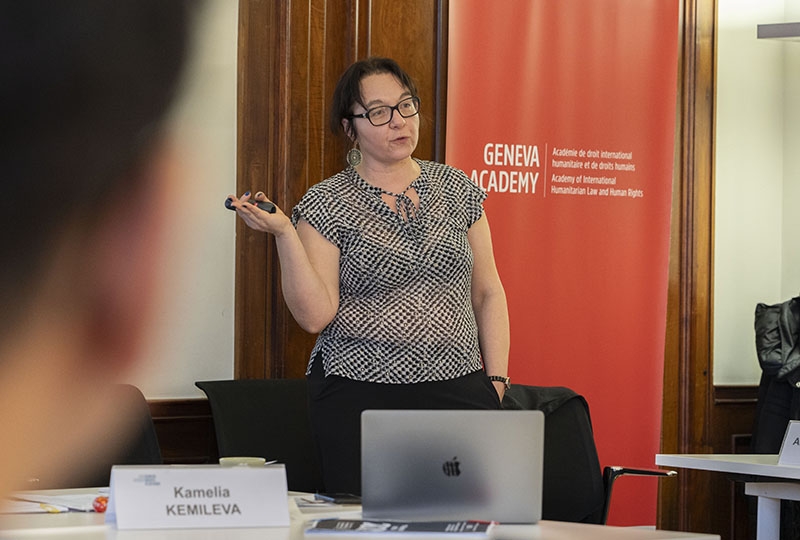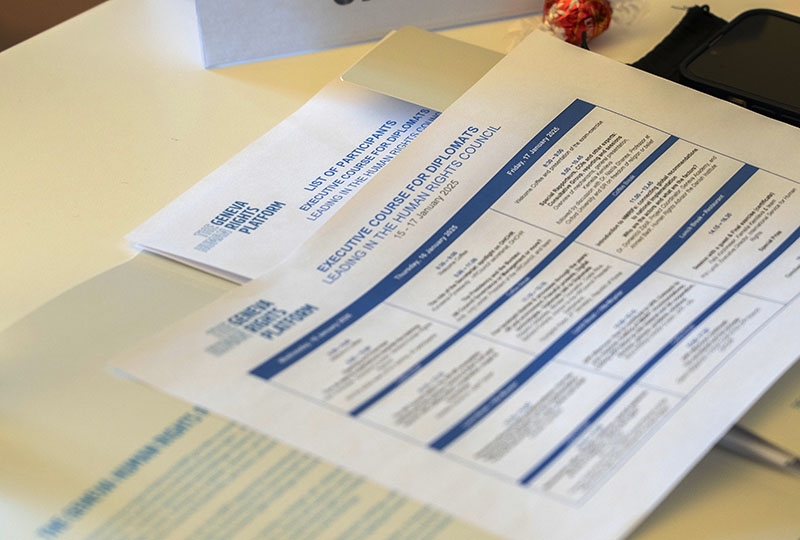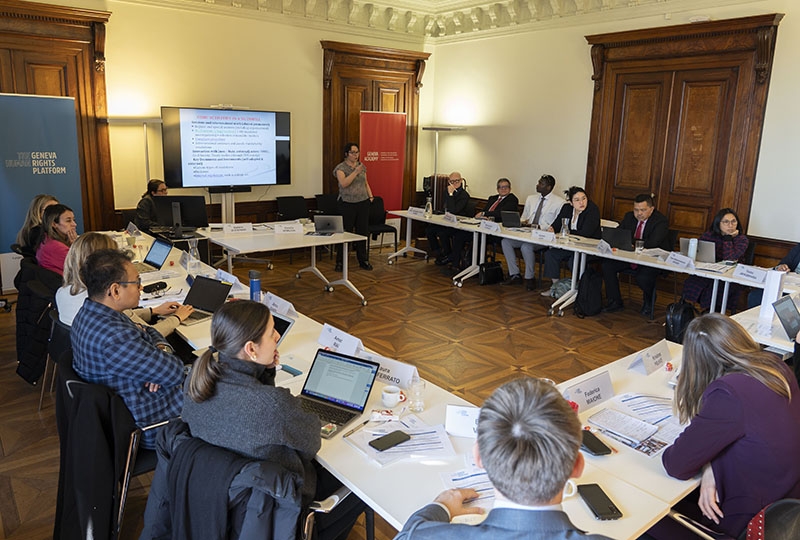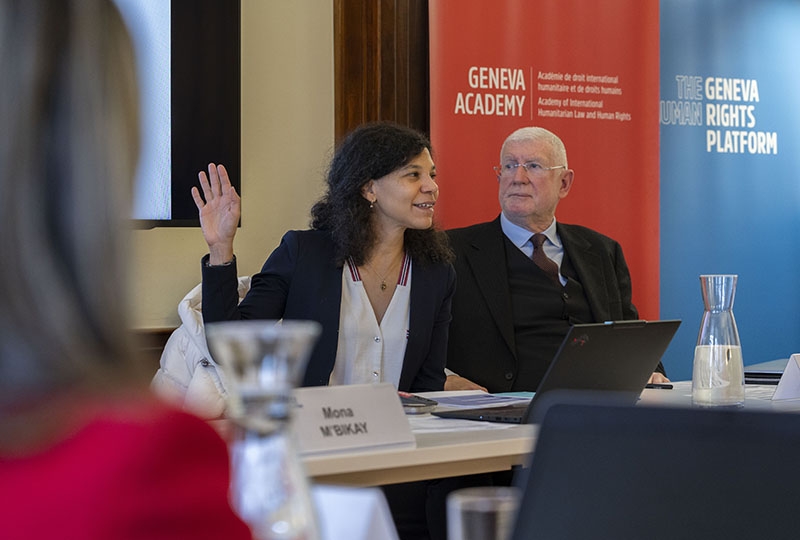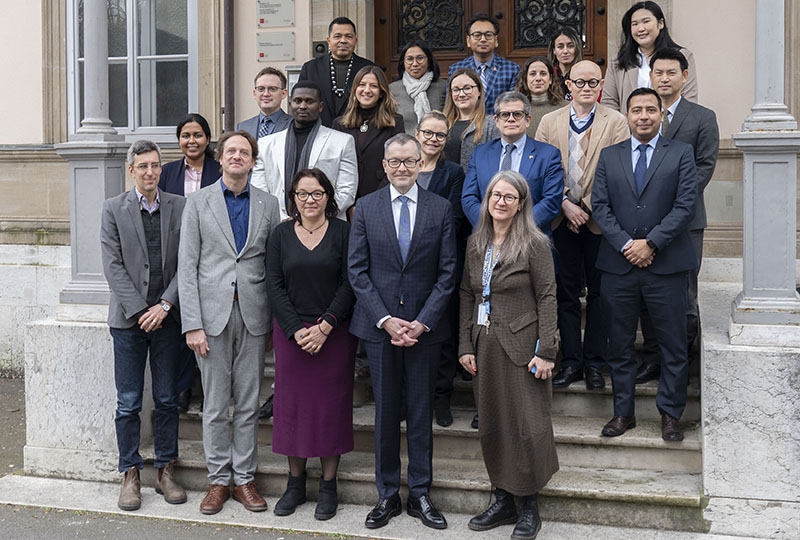Over the course of three days, and through captivating and engaging exchanges with experts from UN human rights mechanisms, the former Chiefs of the UPR and HRC Branches, OHCHR, civil society and senior diplomats, participants delved into the evolution and functioning of the Human Rights Council’s frameworks and mechanisms. In particular, the Universal Periodic Review (UPR), Fact-Finding Missions, Commissions of Inquiry, Special Procedures were put under the spotlight, and particular attention was also given to the Office of the High Commissioner for Human Rights’ critical role as secretariat and human rights focal point across the UN system.
A highlight of the course was a session dedicated to the HRC President and the Bureau, during which participants had the opportunity to engage in a conversation with Ambassador Jürg Lauber, Permanent Representative of Switzerland to the United Nations in Geneva since 2020, and recently elected President of the Human Rights Council for 2025.
Felix Kirchmeir added, 'Given the crucial role of the Human Rights Council in promoting and protecting human rights, and the high turnover of diplomats in Geneva, we hope to be able to offer this executive training course in the coming years. As diplomats arriving in Geneva are not necessarily familiar with the negotiation processes and voting of resolutions and decisions that take place at the Council, this training is beneficial to their new role but also ensures that the Human Rights Council itself functions at its best'.
GHRP Training Hub programme 2025


